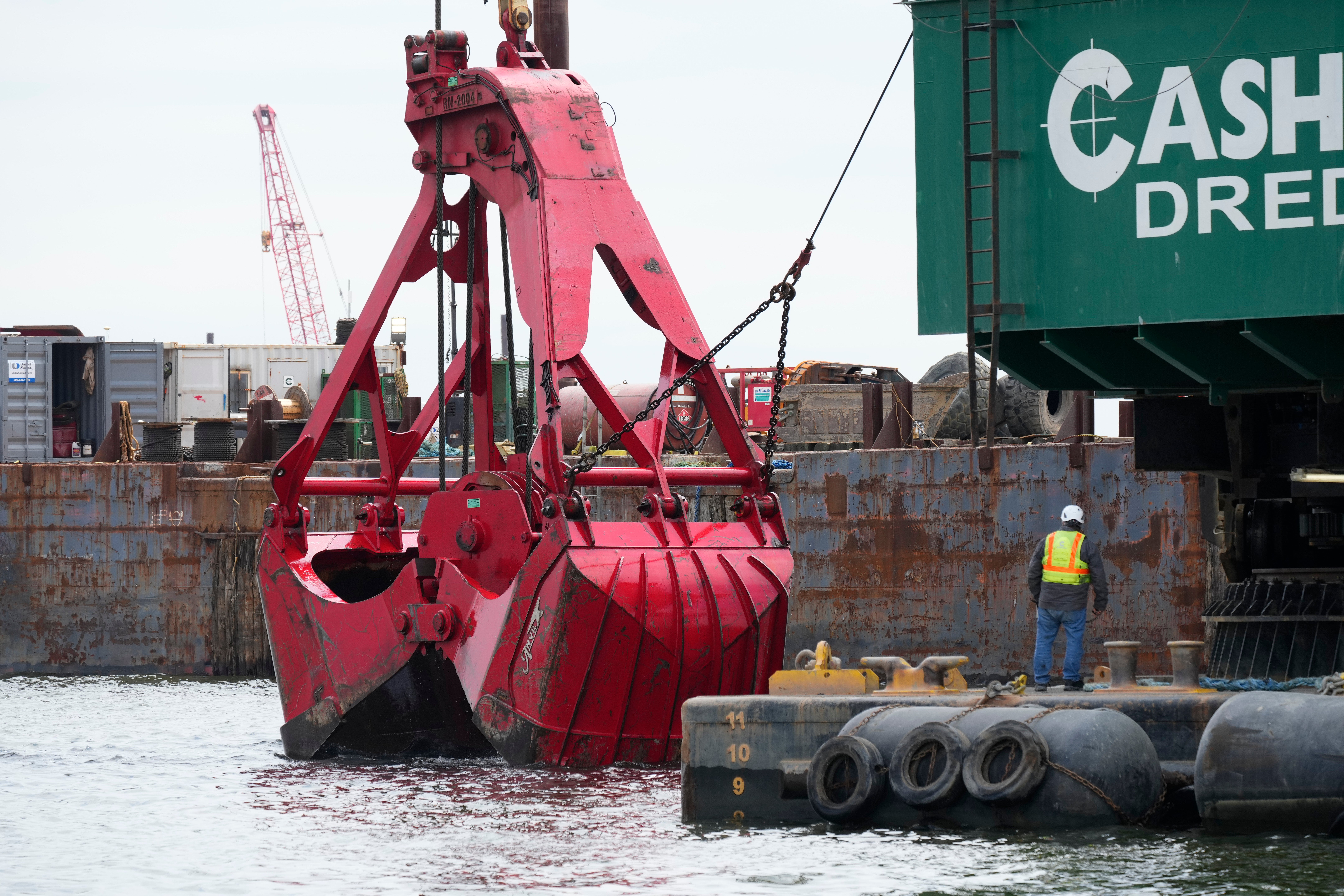Maryland OKs $50.3M contract for removal of bridge collapse debris
A Maryland board led by Gov. Wes Moore has approved a $50.3 million emergency contract with a company that removed debris from the March collapse of the Francis Scott Key Bridge

A Maryland board led by Gov. Wes Moore approved a $50.3 million emergency contract on Wednesday to pay a Swedish construction company that removed debris from the March collapse of the Francis Scott Key Bridge.
While the work to remove debris from the federal channel in the Patapsco River was done by the U.S. Army Corps of Engineers, Maryland entered into the emergency contract with Skanska USA Civil Southeast Inc. in April to remove debris from other channels that could then be used by salvage and commercial vessels after the collapse.
Skanska was chosen because it had successfully demolished the existing Nice/Middleton Bridge across the Potomac River, according to state records. The company was considered qualified and equipped to perform similar operations that were needed expeditiously in the bridge collapse.
Marshall Brown, speaking on behalf of the Laborers-Employers Cooperation and Education Trust in the Mid-Atlantic Region, spoke against the contract at a Board of Public Works meeting on Wednesday. He said Maryland had had time to consider numerous available contractors that could have been mobilized to do the work. He said the emergency no-bid contract went against a state procurement process that is designed to be fair, competitive and transparent.
“This no-bid contract does not meet the standards," Brown said. "For those reasons, we stand firmly against the approval of this contract.”
But Bruce Gartner, executive director of the Maryland Transportation Authority, said the state's engineers used their best professional judgment in an emergency and chose a company that already was doing work in the state.
“They were somebody that was available in the proximity, and we had knowledge that they could follow state procurement law and be responsive to the situation at hand,” said Gartner, who noted that the bridge collapse was “one of the most significant emergencies we've ever had.”
Procuring the debris removal through competitive bidding would have delayed the removal by a minimum of eight months, according to board documents.
At the board meeting, Moore said much work remains to rebuild the bridge, which he described as crucial to Maryland's and the national economy.
“We need to get it rebuilt," Moore said. “The Port of Baltimore is an essential artery for economic flow, economic activity across the country, and to put it simply, our focus on getting this done is not about nostalgia, it’s about necessity.”
The governor, a Democrat, thanked President Joe Biden's administration for including a 100% federal cost share for the rebuild in a supplemental budget to Congress last week. Moore said he has been working to build a bipartisan coalition for the rebuild.
Maryland has estimated the cost of a new bridge to be between $1.7 billion and $1.9 billion. The state plans to build a new span by the fall of 2028.
Shortly after leaving the Port of Baltimore early on March 26, the cardo ship Dali lost power and propulsion and crashed into one of the bridge’s supporting columns, causing its collapse and killing six construction workers.